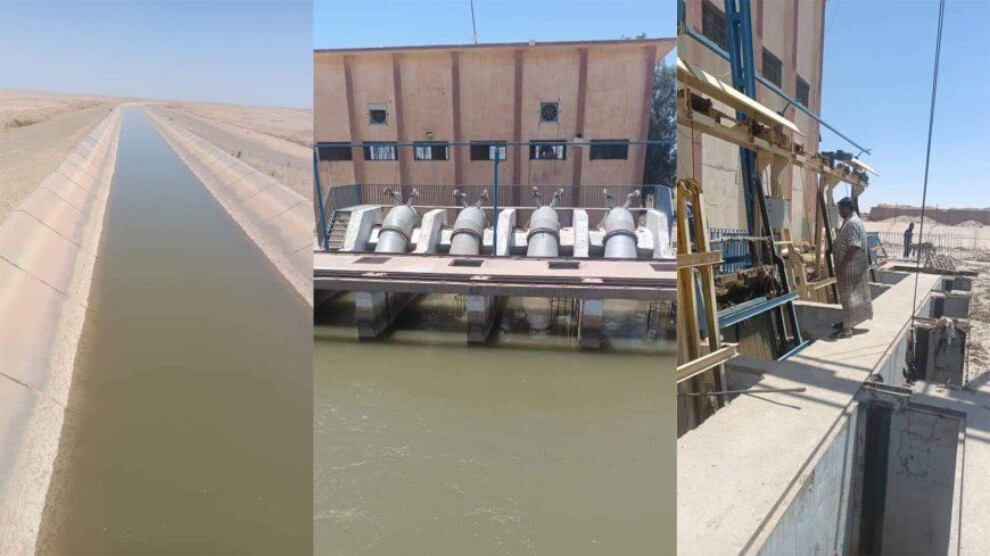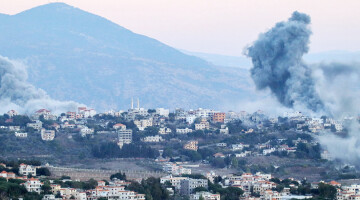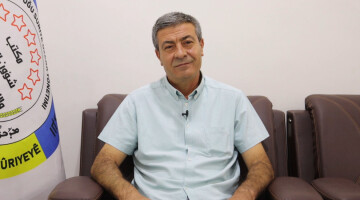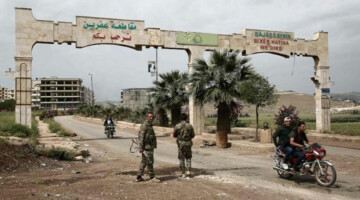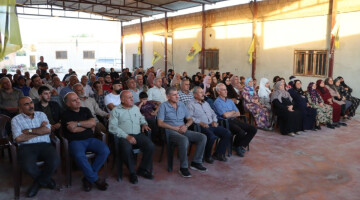The Democratic Autonomous Administration of Northern and Eastern Syria has completed the first phase of the repair of the "Habur Irrigation Canal" and its stations. The testing process started, and the water is expected to reach the city of Hesekê in less than 48 hours.
Deir ez-Zor Canton Democratic Autonomous Administration Irrigation and Agriculture Board had announced that the repair works were completed on 1 July, and that they had started filling the station, making it operational.
The statement added that the second phase of the project to deliver water to the city of Hesekê was underway.
As part of the completion of the second stage, the water coming from the water station in the city of Sewrê to the pipe networks connected to 3 stations started to flow towards the city of Hesekê.
Speaking to Anha News Agency, Deir ez-Zor Canton Democratic Autonomous Administration Executive Council co-chair Mihemed El Dexil said: "Euphrates water will reach the city of Hesekê in less than 48 hours. The repair works of the pumps connected to Ezîziye Station, which will provide water to the city of Hesekê, have been completed."
The canal station extends to the city of Sewr and irrigates 220 thousand acres of land in the north of Deir ez-Zor Canton. At the same time, drinking water will be provided to 270 thousand people through 5 stations, including two stations in Herîze, Herîciye and Xamiye El Sewr. Water will also be supplied to the city of Hesekê through stations and pipelines.
The Democratic Autonomous Administration announced the repair works of the 50-kilometer-long "Habur Irrigation Canal" at the beginning of May.
There has been a water problem in the city of Hesekê since the Turkish state and its mercenaries occupied the city of Serêkaniyê and Alouk station in 2019.

